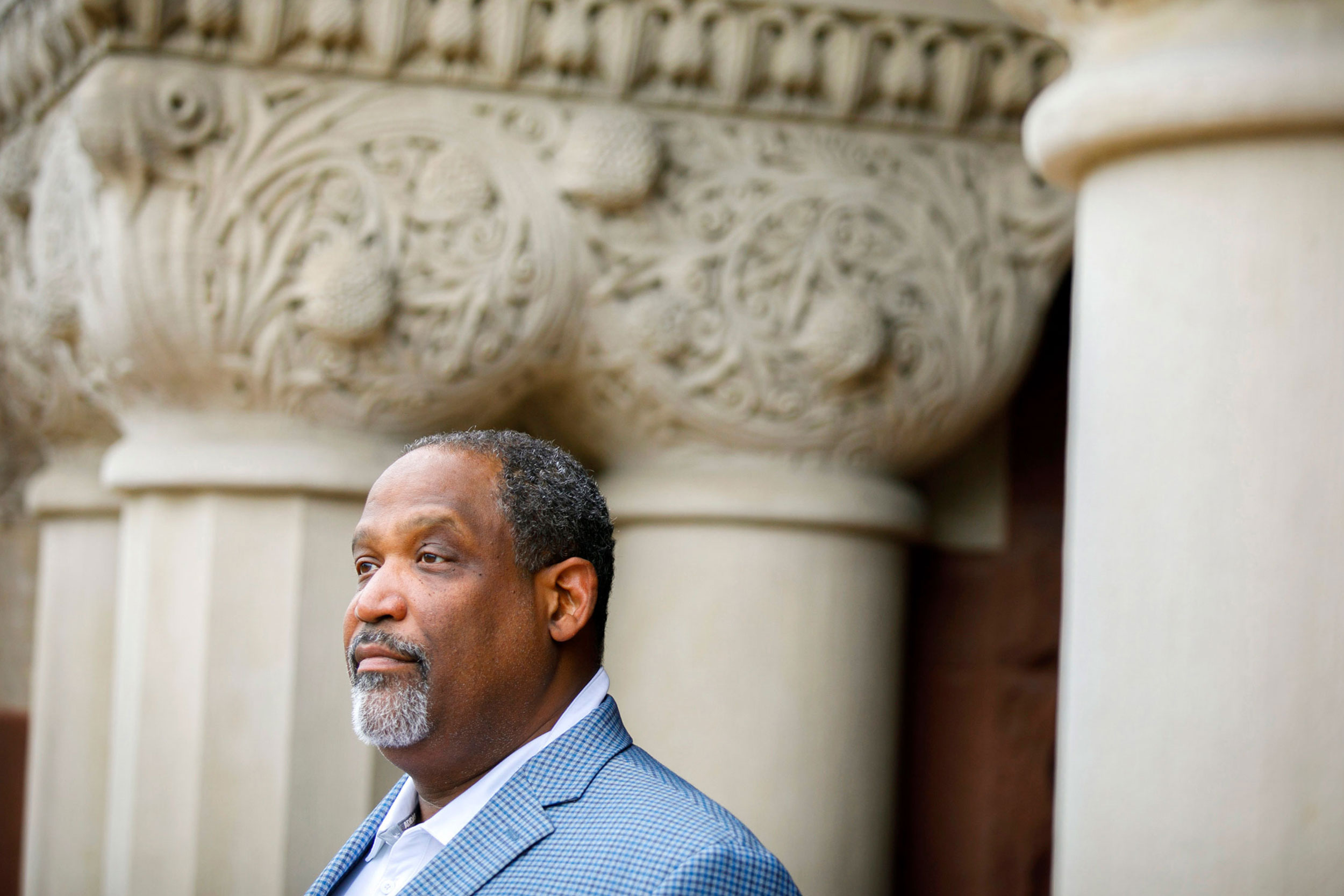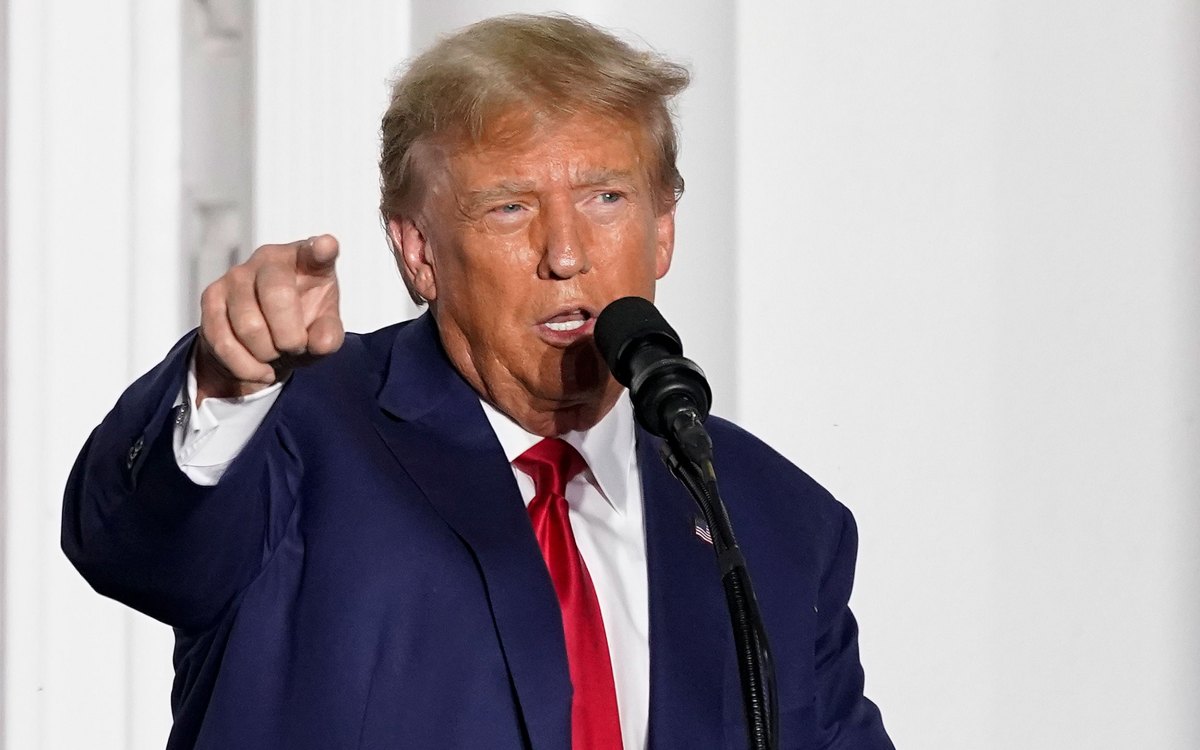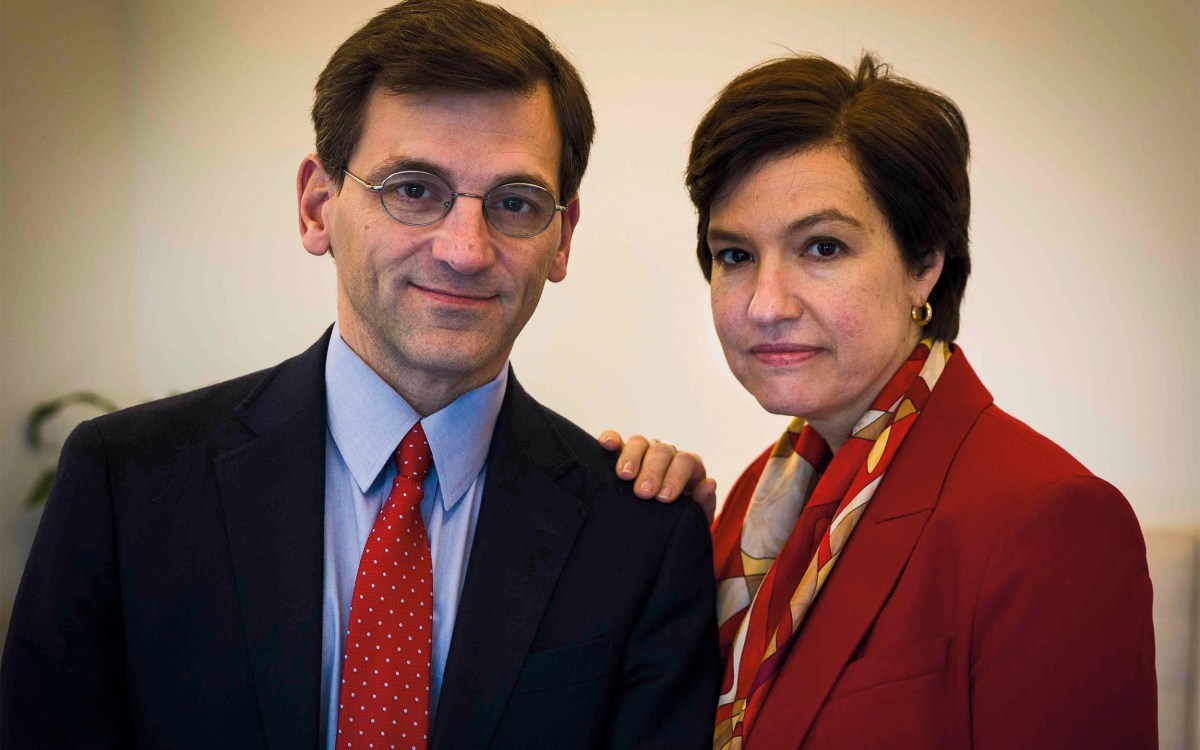
“I think it is extraordinarily optimistic thinking on the part of the government that they will have a trial before the elections,” says Harvard Law Professor Ronald Sullivan Jr.
Stephanie Mitchell/Harvard Staff Photographer
Did Trump really believe he had won?
Criminal law specialist looks at latest indictment, examines legal challenges, surprises, political fallout — and whether trial will conclude before election
Special counsel Jack Smith, J.D. ’94, filed an indictment against former President Donald Trump last week for his role in efforts to overturn the 2020 election. Filed in Federal District Court in Washington, it charged Trump with conspiring to defraud the U.S., disenfranchise voters, and conspiring and attempting to obstruct the Jan. 6 certification of the presidential election results.
The Gazette spoke with Ronald Sullivan Jr., Jesse Climenko Clinical Professor of Law and faculty director of the Criminal Justice Institute at Harvard Law School, about the latest indictment, what surprises it held, the challenges for the prosecution, and his expectations for the trial. The interview has been edited for length and clarity.
Q&A
Ronald Sullivan Jr.
GAZETTE: How did special counsel Jack Smith’s indictment echo the findings of the House Committee that investigated the Jan. 6 attack on the Capitol?
SULLIVAN: Many of the facts that we see in the indictment were developed from the Jan. 6 hearings. But there was one count that many of us did not see coming. President Trump was charged in a four-count indictment and one of them, the conspiracy against rights, charges that Trump deprived U.S. citizens of a civil right — the right to vote and to have their votes counted. It’s certainly fundamental, but many didn’t see that charge coming. It took many of us by surprise.
GAZETTE: Why? What do you make of it?
SULLIVAN: Although I was surprised to see the charge in the indictment, it fits with the other three conspiracy charges, where the government has alleged that the former president conspired with others to deprive people of their votes. That’s essentially, distilled to its essence, what the alleged scheme is about. It was to disenfranchise millions and millions of people, deny their votes, and overturn the election. Although I didn’t expect this charge, it fits the conduct.
GAZETTE: What is the prosecution’s main challenge?
SULLIVAN: The biggest hurdle that the government will face is proving “state of mind.” In each of these counts, the government must prove that Mr. Trump intended to break the law, that he knew in his own mind that the election was lost, and nonetheless, he intended to do things to overturn the election. Under U.S. law, if Mr. Trump can show that he didn’t know or he was confused or he believed that he had won the election, then these counts will fail.
The count about obstructing Congress has an even higher mens rea, or mental state requirement, because it requires something called corrupt intent, and that has even more stringent state-of-mind requirements. It says that not only does Mr. Trump have to intend the result, but the motivation for his actions must be wrong or unlawful. It’s an even higher standard. Proving that beyond a reasonable doubt will be the government’s most significant challenge.
GAZETTE: What are your expectations about the outcome of this trial?
SULLIVAN: It’s hard to say at this point because I haven’t seen all the evidence. Indictments are written to make defendants look guilty. If I just go by the indictment, everybody who was indicted looks guilty. And the same holds for this indictment; it certainly makes the president look guilty. Whether the case is good or bad will depend on the rest of the evidence. As the media begins to report who the witnesses are and what the other evidence is, I can better assess the chances of both parties.
GAZETTE: Some people have said that the investigation by Smith may have been rushed as he took only eight months to complete his investigation. What do you think?
SULLIVAN: I don’t think the investigation was too fast. What people have to remember is that Smith had the benefit of a two-year-long investigation by the Jan. 6 committee. A lot of the groundwork was already done. I think that the Department of Justice was under some time constraints because it wanted to get an indictment out before we get too far into the political season, but I do not get the sense that it was rushed.
GAZETTE: How long will the process take? Will it be over before the November 2024 election?
SULLIVAN: Most felony cases take a year or so to get to trial. A serious felony case takes up to a year and a half or longer to get to trial. I have tried dozens of federal criminal cases, and I cannot remember ever getting one to trial within a year’s time. I think it is extraordinarily optimistic thinking on the part of the government that they will have a trial before the elections. The defendant has a constitutional right to a speedy trial. My suspicion is that Mr. Trump is in no rush to try this case, and there will be motions, complaints about discovery, and procedural complaints throughout that I think will push this trial back. The government, of course, wants to try it before the elections, but I have serious doubts whether that’s doable.
GAZETTE: How do you think Trump’s legal troubles are going to affect his presidential run?
SULLIVAN: Let me answer that in two ways. In terms of legal jeopardy, President Trump is in a world of trouble. He’s got three felony cases he’s facing, and perhaps a fourth one coming up in Georgia. Politically, from what I read these indictments seem not to have had much of an effect on his popularity within his party. It may be that both things are true, that he will remain in very dire criminal jeopardy, and that he may well win the Republican nomination for president of the United States.
GAZETTE: As a criminal lawyer, are there things you would like to see happen in these proceedings?
SULLIVAN: Certainly, I would like there to be fair trials. Every criminal defendant has a constitutional right to a fair trial with the effective representation of counsel. I wish that for Mr. Trump, as well. It would be nice if cameras were in the courtroom so that the country could see what happens and could also see that he got a fair shot — the same sort of shot that every other American gets when accused. I think that the government should be forced to prove its case beyond a reasonable doubt. I think it will show both to the citizenry and to the world that our system works.






